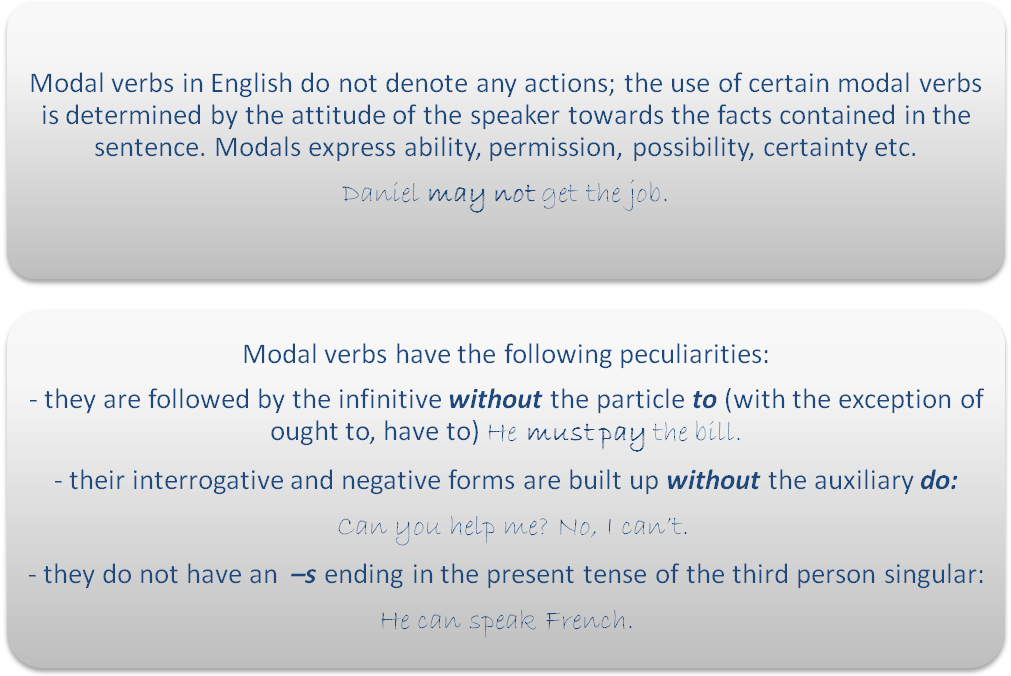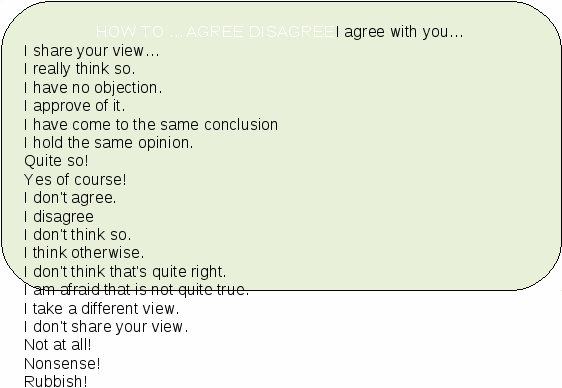УЧЕБНИК 1 КУРСА. Learningenglis ru learningenglis ru
 Скачать 18.07 Mb. Скачать 18.07 Mb.
|
|
G. Complete the sentences choosing from a) or b). 1) Adult and continuing education, plus special education is available …
2) Students who have finished secondary school and would like to get higher education must attend what is referred to as …
3) More and more jobs and careers in Engineering, Business Administration or Social work today require applicants to posses …
4) Completion of a US doctorate degree typically takes between …
5) Academic year runs from …
6) A majority of schools are competitive, selecting …
GRAMMAR: MODALS  THE MEANINGS OF MODAL VERBS AND THEIR EQUIVALENTS
A. These sentences come from an information booklet about a college. In each case choose the appropriate modal verb: may, must, can, should, be able to, or need .
B. Choose the correct word or phrase to complete each sentence.
C. Look at the chart and make sentences using have to, don’t have to, or can’t.
e.g. Airline pilots don't have to have excellent eyesight. They don’t have to work office hours. D. Change each of the following sentences using might, can’t, must, and a suitable infinitive. 1) It’s possible that they will give us the discount that we want. They … might give us the discount we want. 2) Judging by the phone bill, I am sure she has been making long international calls. Judging by the phone bill, she … 3) The factory is on a 3-day week. I am sure they aren’t selling many cars. The factory is on a 3-day week. They… 4) It was a very bad deal. I am sure they lost a lot of money. It was a very bad deal. They … 5) There is a chance she will be promoted at the end of the year. She … E. Match the comments in column A with the comments in column B.
GRAMMAR REVISION F. Open the brackets. Business star Many of us want to become successful in business. One of the first steps is choosing a business school. To gain the success your level can/may/should be really high and you can/have to/may be a real specialist, only professional businessmen have to/are able to/should work far/further/furthest and develop their career. If your goal is to become a Business School superstar, you can’t/mustn’t/shouldn’t forget that being a leader also means being a team player. When you study at business school, many projects are provided as group projects. If you deal with other people well, it will be easy/easier/easiest for your group to succeed. Leadership skills are shown not only when you are in charge of some group, but first of all how you help the other members of your team. It must/can/may be any kind of job, but you have to/can/should do it good/better/best of all: manage deadlines, delegate and manage time. Your team will appreciate that. Your colleagues will respect you if you can/are able/have to not only to lead, but also to follow when necessary. Be good/better/the best candidate and get great/greater/the greatest job! LANGUAGE SKILLS 2: EXPRESSING YOUR AGREEMENT/DISAGREEMENT  e.g. A: I think that there is a big difference between studying at university and at school. I guess that you have to set your own learning objectives and make sure that you meet them. B: I hold the same opinion and I have come to the conclusion that the main difference is that you have to manage your own time. One way of doing that is to get a diary. A: I don't think that getting the diary would help if you don’t set your own deadlines. B: It is true but it can help to keep these deadlines under control. SPEAKING Discuss with your partner the following questions using expressions from Language skills 2.
OVER TO YOU Using the information from the textbook and the internet fill in the table and make the description of higher educational systems using it.
WORD FILE
TEXTS FOR HOME READING TEXT 1 CREDITS
1 Like everything else under capitalism, the crediting and credit card system is simple. A store, a filling station or just a credit company allow you credit, its limit depending on your solvency which they calculate somehow (incidentally, on the basis of the information you give them). Having opened a credit account, they send you a plastic card bearing your name, account number and a blank for your signature. Wherever credit cards are accepted, the cost of your purchases and of the services rendered are put on the account indicated on it. 2 Every month the company which has issued you the credit card sends you a report on your expenses. The report tells you how much of the credit you have used up, and recommends the minimum of your expenses to be defrayed8 before the end of the month. You may pay out the lump sum, which is a clever thing to do because payments by installments will include a certain interest agreed upon in advance and recorded in your application for credit. This interest usually exceeds the bank credit rate. 3 After you have exhausted the credit, your card will no longer buy you anything. In that case you can use it as soon as you have paid for everything. This system is not only simple but convenient as well. You don't have to carry cash, even a checkbook. Theoretically, your credit cards pay all your expenses: food, gas, clothes, car rentals, hotel bills, airlines and health resort bills. 4 Another convenience of this arrangement consists in that you can start paying for your purchases within a month of making it. The latent psychological trick is, however, that one is more likely9 to go on a spending spree if all one10 has to do by way of paying is to show his credit card instead of shelling out cash. Credit card holders buy more, as a rule. 5 Credit cards are just a means by which a mighty Western credit system has penetrated into everyday life and into the budget of the average American family. Being a fragment of that system, credit cards are its graphic illustration. There is hardly a sphere of the capitalist economy which credits haven't found their way into. Homes, consumer goods, planes, college instruction, industrial equipment, farm machines, fertilizers, land, factory and office blocks - all these are purchased on credit. Without credits, modern capitalism will not last a day. Without them, the Western economy would not have been as dynamic as it is now: by governing its material and financial resources, credits stimulate their turnover. It is11 due to such system that the Western economy has achieved the results which we admire today. The credit system plus enterprise is the core of American capitalism. | ||||||||||||||||||||||||||||||||||||||||||||||||||||||||||||||||||||||||||||||||||||||||||||||||||||||||||||
